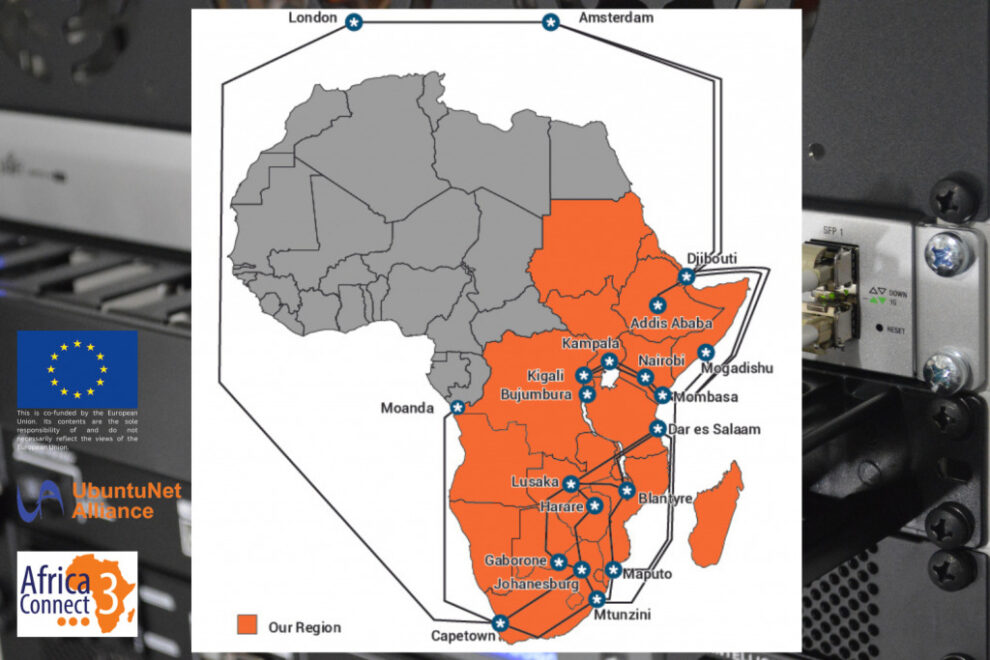This article was originally posted on UbuntuNet Alliance’s website.
Recently, the Ubuntunet Alliance completed a significant upgrade to the core of its network. The core interconnects the key Points of Presence (PoPs) of Cape Town, Mtunzini, Maputo, Dar es Salaam, Nairobi, and Amsterdam. The upgrade was done on links ranging from 2Gbps to 3 Gbps in capacity, increasing their capacity to 10Gbps, thereby bringing the total capacity at the core to 20Gbps when considering the network design’s requirement for path and provider redundancy.
Where possible during the procurement for the upgrades, the Alliance sought to restructure existing Indivisible rights of Use (IRUs) contracts, increasing the link capacities while lowering Operations and Maintenance charges. This means the old high O&M charges disappeared and so the outcome of the process was increased resilience and reliability of the network while lowering its operations and maintenance costs.
This will enable the Alliance to upgrade capacity offering to its member NRENs while lowering the per unit price. This, in turn, will allow for the seamless delivery of content, data, and services to users, enhancing their experience and enabling more effective collaboration and knowledge sharing.
This upgrade was made possible by counterpart funding sourced for the European Commission through the AfricaConnect3 project which is currently in its fourth year.
In conclusion, the recently completed upgrade to the core of the Research and Education Network has brought about significant improvements to its capabilities. The increase in capacity, redundancy, and cost savings will provide a more reliable, cost-effective, and efficient network for the users, enabling them to achieve their goals and contribute to a better world through their research and education activities.





